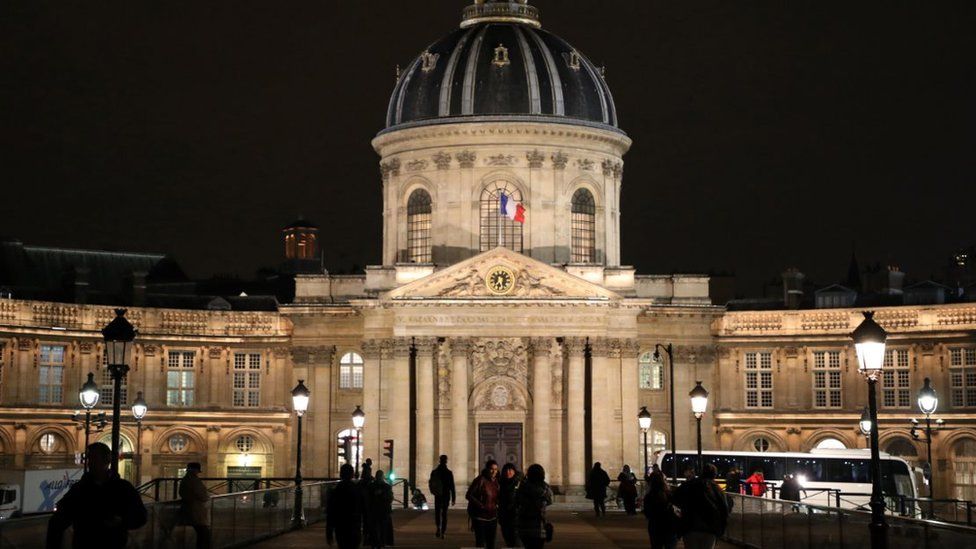'Sexist' inclusive writing row riles France
- Published

The French, as is well known, are obsessed by one thing - language.
The latest topic to consume a nation of lexicologists is "inclusive writing".
This is the attempt to erase all trace of sexism in a language where gender is a central feature - French nouns are either masculine or feminine, dictating all adjectives and some verbal forms (a point that is sometimes made painfully clear to foreigners who happen to get those wrong).
In such a charged linguistic context, the fight for sex equality is not exactly new. In recent decades the names of traditionally male professions have been feminised.
French people now often talk about "la juge" or "la ministre". Many writers add an etymologically daring "e" to "professeure" or "auteure".
But supporters of "inclusive writing" go further. They want to expunge any vestige of male chauvinism from the language of Molière.
Gender v sex
Take the rule that the masculine trumps the feminine when referring to a group that contains at least one man. In French, 10 sisters and one brother are collectively "heureux" - happy in a masculine way. Under proposed inclusive rules they would be "heureux.euse.s".
More generally people of both sexes would be "nommé.e.s" (appointed) to certain positions. Similar endings would apply to nouns. The "électeur·rice·s" (voters) would go to the polls, provided they are "bon.ne.s citoyen·ne·s" (good citizens).
Such recommendations have been made for several years. In 2015 the High Council for Equality, an official body, endorsed them for job designations without causing a furore.
It was only in September, when the first manual for primary schoolchildren using "inclusive writing" was released that the public furore started.
Critics were quick to point out that grammatical gender is very different from biological sex. French words like "person", "celebrity" are feminine. Johnny Hallyday is a "star reconnue" with "e" (a well-known star - in France, at least). A woman can be "un monstre" (monster) and a man "une andouille" (idiot).
Prominent philosopher Raphaël Enthoven called inclusive writing "an attack on syntax by egalitarianism, a bit like the Mona Lisa being slashed with a fair-trade knife".
The Académie française - which, contrary to legend, not every French person regards as the final arbiter in those things - pronounced that inclusive writing constituted a "mortal danger" for the language.
A matter of state
Backers insist that it is high time to strike a blow for linguistic inclusivity. "Language structures thought," academic Eliane Viennot told Sud-Ouest newspaper. "Telling children the masculine form wins over the feminine cannot contribute to shaping egalitarian minds," she added.
As is often the case for anything that matters in France, the row has become an affair of state.
Prime Minister Édouard Philippe issued a ban on inclusive writing in official texts, AFP news agency reported this week.
"The masculine form is a neutral form which should be used for terms liable to apply to women," a memo from Mr Philippe is quoted as saying.
No doubt many will be "horrifié.e.s" at this edict, and gender-adjusted French epithets will continue to fly.
- Published5 February 2016
- Published5 February 2016
- Published21 January 2016
- Published20 February 2016